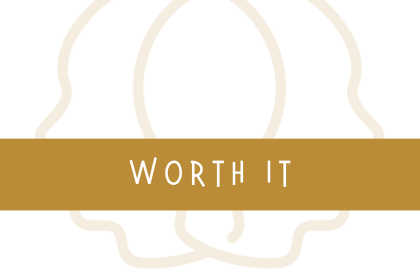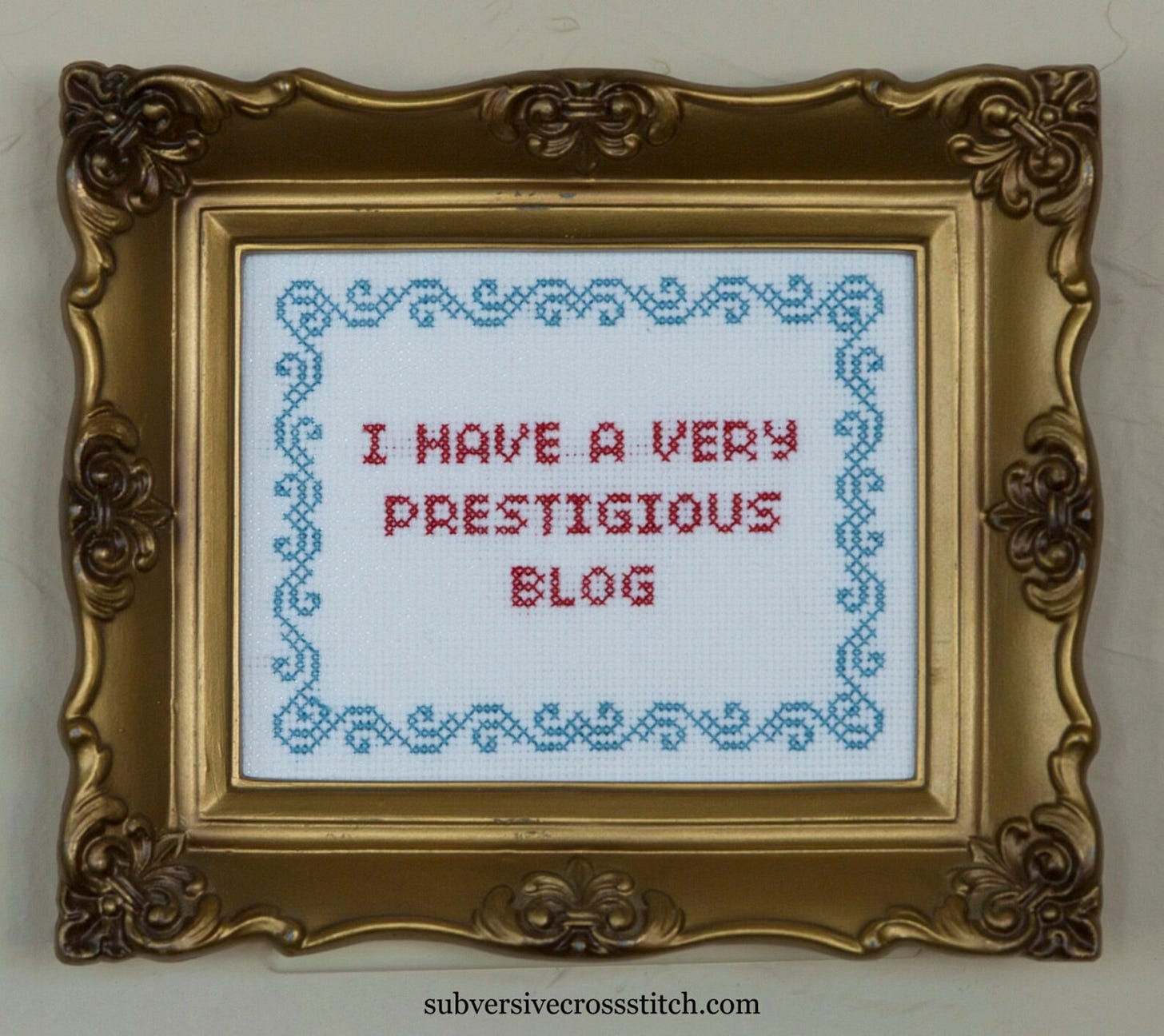Welcome to Worth It, a monthly(ish) round-up of the very best of what I’m reading, watching, listening to, and occasionally even cooking. Only the things absolutely worth your valuable minutes.
We’ve got a bit of a reading backlog to deal with here, folks.
6 novels, 2 nonfiction. Feel free to skim.
Homegoing, Yaa Gyasi
Homegoing was mentioned by several people on a thread
posted on Culture Study about books that impacted readers in a major way. If you liked Colson Whitehead’s Underground Railroad, which also dabbles in magical realism, you’ll like Homegoing.One sister (Effia) becomes the wife of a British official; her half-sister (Esi) is captured and sold into slavery. Each chapter is narrated by a descendant of either Effia or Esi, and it traces the impact of the parallel fates of seven generations up to present day. Without much overlap between the characters in each chapter, the chapters read more like linked stories than a novel. Homegoing prioritizes emotional impact, symbolism, and theme over a cohesive narrative—this is why so many people are moved by it. But you’ll need some patience for the form if you prefer straightforward storytelling that follows a single protagonist.
Ninth House + Hell Bent, Leigh Bardugo
I almost started this review by saying “I don’t typically read books like this,” but I guess I’ve read enough fantasy post-pandemic to forgo that statement. I can’t remember how I found Ninth House, but I was in the mood for something juicy and low-stakes, and magic on the campus of Yale University seemed to fit that bill.
Reading this book is a bit like watching a baby giraffe being born. First the little newborn giraffe (in this metaphor, that’s the story) falls to the ground all gangly and disoriented. You aren’t sure you want anything to do with that slimy heap, but you watch as it is licked and prodded by its mother (the author) for an uncomfortably long while. Finally, an hour later, the organism wakes up, rises, and after some wobbly steps, is off and running.
It’s typical for fantasy to take a while to get off the ground, so to speak, because the writer is forced to spend time “world-building” (communicating what the rules of the book’s universe are, since they are, presumably, different from ours).
Alex, high school drug addict and deadbeat, is plucked from her hard-knock life by a dean of Yale, who somehow understands better than her the extent of her magical powers. She’ll work for Yale’s secret magical society in exchange for tuition and a chance at a new life. Ghosts and rituals and demony things happen, and eventually Bardugo manages to connect most, but not all, of the dots.
By the end, I was persuaded to move on to Book Two (that’s Hell Bent), even though it meant that for a solid week my kids were distraught about the cover of my book, which brazenly displayed the combination of a mangled bunny and a forbidden cuss word. In Hell Bent especially, Bardugo has to manage a lot of “how the magic works” and “who is connected to whom” information at the same time she tries to build characters we care about. I’m not sure she pulled it off, but about 9,000 Amazon reviewers disagree with me, so.
Mad Honey, Jodi Picoult and Jennifer Finely Boylan
After my first Picoult a couple months ago, I knew one thing: this woman’s stories are the stuff audiobook dreams are made of (easy to follow, low buy-in courtroom dramas with compelling characters and plenty of twists). They take me back to sixth grade in the 90s, when I hid in my bedroom and shamelessly devoured John Grisham’s entire paperback oeuvre.
But Mad Honey doesn’t escape the problem I had with Small Great Things—calling it “agenda-laden” is an understatement. The gasp-worthiest moment in the story depends on this agenda, so I can’t tell you what it is. But if you are already all the way on board with the conflict at the heart of the novel, the preachiness might feel superfluous to the narrative. If you are in total disagreement with the authors, I’d imagine you’d be riled enough to yank out your airpods. Neither was true for me, but I think I read books with a lot less ideological investment than most people. (In other words, it’s realllllly hard for a book to make me mad.)
On the one hand, I really admire Picoult for writing books with purpose. She is taking a huge risk to do it, and I imagine she’s received some unkind internet messages. On the other hand, I never want to feel like my author thinks I’m a step behind her, morally-speaking.
North Woods, Daniel Mason
This book is wild. North Woods follows the occupants of a single New England house over 300 years, from two young lovers escaping their Puritan village to present-day. The style and language of the tale changes as the centuries do, and the form shows up as everything from song lyrics to plant illustrations. It is a reflection on how culture changes but land mostly stays the same. People come and go, and the places we live hold all those stories. Mason does some really cool things, stylistically speaking. But again, you might not be into it if you just want someone to tell you a juicy story.
People LOVE this book. I only liked it, sorry.

Banyan Moon, Thao Thai
This one, I loved. Banyan Moon is about three generations of women (a woman in her thirties, her mother, and her grandmother). When Ann finds herself unexpectedly pregnant, she inexplicably flees her safe position and wealthy boyfriend in Michigan for her broken home in Florida. No one is more surprised by this than Ann, who has been running away from home since she was a teenager.
The theme at the heart of this novel is the resistance we all have to “re-seeing” the past. This is something I think about a lot. It seems simple that someone we love might admit a wrong in the present—but often, doing that has implications for choices made long ago. Sometimes acknowledging fallibility in the present pulls a thread backward through the timeline of an entire life, and you realize you were wrong about lots of things. Most of us would rather die wrong than relinquish the story we’ve told ourselves (about ourselves) up that point.
This is what happens both to Ann and her mother Huong as they re-see their mother-daughter relationship through older eyes. Perhaps they had misinterpreted the other’s intentions? Perhaps they had caused pain themselves? Their willingness to re-see their relationship is what makes this book powerful.
I think it’s in the Little Fires Everywhere category, if you liked that one.
Raising Hell, Living Well, Jess Elefante
Right now I’m really into nonfiction books doing unexpected things. RHLW is a fun, genre-bending mash-up of (1) sharp, research-backed cultural criticism + (2) memoir-style storytelling. It’s like an anti-wellness wellness book? Or a memoir set on fire? The author
is just doing her own thing, and her voice is funny, subversive, and wild. A reformed brand strategist, she is determined to help people “see through the bullshit” she was once, herself, peddling. Everyone, everywhere is trying to influence you. And, she argues, once you see through the nonsense of advertising, social media influencing, brand strategy, political punditry, and the relentless, biased narrativization of your life and choices by people in power—you can’t go back. I can attest to that.Why We’re Polarized, Ezra Klein
I should have read this book a long time ago, but I’d absorbed a lot of it just from listening to Klein’s podcast. Still, I wanted to go back to this book, published (significantly) at the beginning of 2020, in which Klein walks us step-by-step through the events that led American “public life” to its current state of unhinged-ness.
The important thing to know about Why We’re Polarized is that it really has very little to do with politics. Personally, I’m not at all interested in the ground-level machinations of American politics, but I am fascinated by the zoomed-out logic behind it all. What do people want? What will they do to get it? Essentially: Why do people act the way they do?
And I can’t imagine a smarter assessment of the last 10 years than what Klein offers here, one that is somehow timely and evergreen. He’s forthright about leaning liberal, but IMO he is clear-eyed about how that biases him, he’s critical of his own position in the system, and he seems sincerely open to correcting his misperceptions. If I could buy this book for everyone before we endure the remainder of this election year, I would.
“We are so locked into our political identities that there is virtually no candidate, no information, no condition, that can force us to change our minds. We will justify almost anything or anyone so long as it helps our side, and the result is a politics devoid of guardrails, standards, persuasion, or accountability.”
I can’t stop thinking about all the nanoplastics in the water we’re drinking. Huge bummer.
I read this essay—about a woman who lived alone in a cave for 500 days—with two of my kids. That was a mistake because Beatriz is, as you might imagine, a rather eccentric lady, and she says the f-word a lot. But the kids were really interested in the effects of her time alone, such as degradation of her memory and language skills. It’s always amazing to me how much evidence there is that people were not meant to live alone.1
All the coffee shops in the entire world are starting to look alike. Want to know why?
I have read at least 10 articles about the Stanley tumbler phenomenon. Here’s one.
About a year ago, I bought a cross-stitch kit at the best bookstore because it made my chuckle quietly to myself. (I will pay a lot of money for anything that makes me chuckle quietly to myself, including a friend, if you want to apply.)
Last weekend I finally did the stitching, and every time I look at the completed product, I (you guessed it) chuckle quietly to myself. Please admire my work in our powder room, which is fast becoming my favorite room in the house (decoratively-speaking), though my kids say it is scary with all the strangers looking at them while they do their business.

The point is, I bought the kit because of the wanting-to-chuckle, but it turns out, cross-stitching is weirdly satisfying. You can do it while you watch tv or just totally zone out after the kids are in bed, and I imagine it feels something like yoga, though I do not do yoga because, unlike cross-stitching, it involves a room full of people.
Etsy has tons of patterns, and there’s a trend of salty cross-stitches if, like me, you are a disappointment to your mother.
Till next time.
Which is not to say they weren’t meant to take long solitary vacations.













Lindsey, thank you for putting a link to the tiny fruits and veggies cross stitch. That made me so happy! Thank you for curating many things for us.
“On the other hand, I never want to feel like my author thinks I’m a step behind her, morally-speaking.” I’ve been having a lot of conversation with friends - and with myself, tbh - about what point art stops becoming art when an agenda takes over. No answers. Just questions.
Your powder room looks very inviting. And I am also a disappointment to my mother.